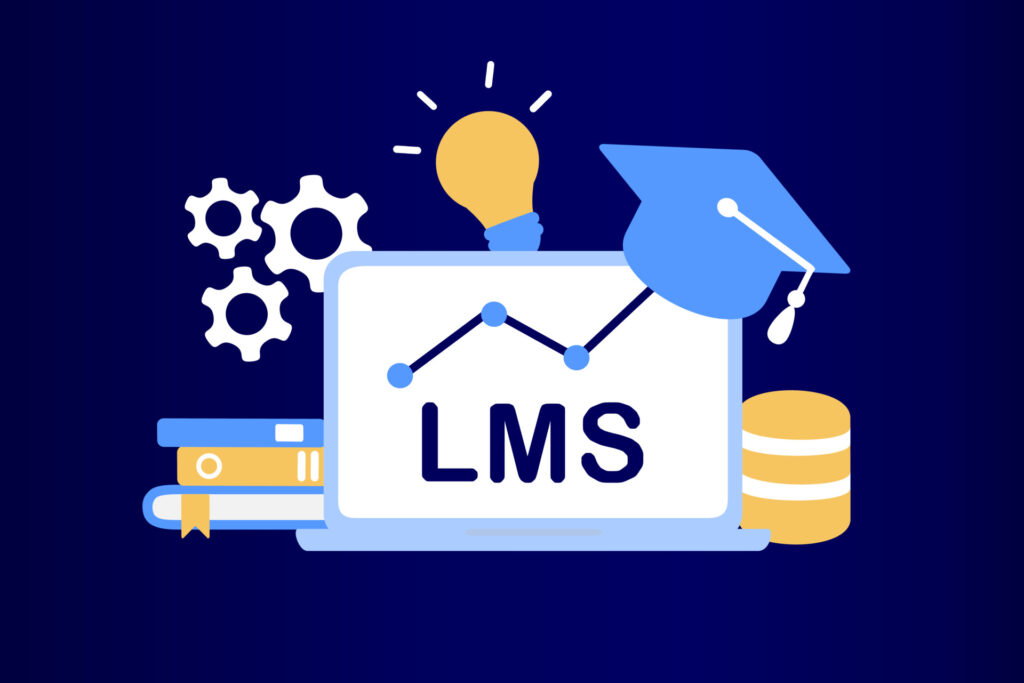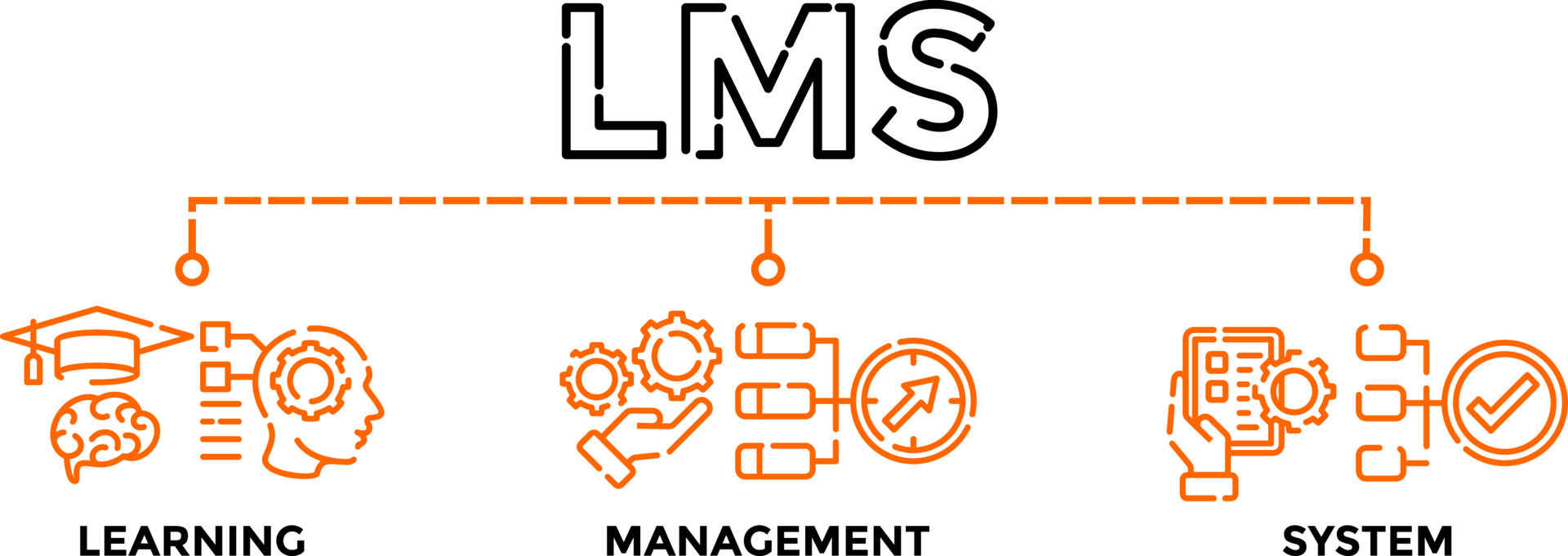In today’s rapidly evolving digital landscape, the future of education relies heavily on technology-driven solutions. One such solution that has gained immense popularity and transformed the way we learn is the Learning Management System (LMS). LMS platforms have revolutionized traditional education models by offering a digital infrastructure for managing and delivering courses online. In this blog, we will delve into the evolution, current state, emerging trends, predictions, challenges, and opportunities for the future of Learning Management Systems.
Brief History of Learning Management System
The concept of Learning Management Systems can be traced back to the late 1990s when e-learning started gaining traction. With the growing demand for remote and flexible learning options, educators and institutions sought efficient ways to organize and administer online courses. LMS emerged as a comprehensive software solution designed to simplify course management, content delivery, assessment tracking, and learner engagement.
Initially, Learning Management System platforms focused primarily on content delivery and basic administration features. However, as technology advanced, so did the capabilities of these systems. Today’s modern Learning Management System platforms offer a wide array of features and functionalities that empower educators and learners alike. These platforms have become central hubs for course creation, resource sharing, collaboration, assessment management, and performance tracking.
Present Situation of Learning Management System

In the current educational landscape, Learning Management Systems have become indispensable tools for both traditional academic institutions and online learning platforms. Among the top LMS platforms available, a few noteworthy ones include Moodle, Canvas, Blackboard, and Schoology. Each platform offers its unique set of features and benefits, catering to the diverse needs of educators and learners.
LMS platforms provide numerous advantages, making them highly sought after in the education sector. One of the primary benefits is the flexibility they offer to students. Learners can access course materials, participate in discussions, and complete assignments at their own pace, from anywhere with an internet connection. LMS platforms also provide a centralized space for course management, simplifying the process for instructors to organize and distribute course content efficiently.
Moreover, LMS platforms facilitate personalized learning experiences by allowing educators to tailor courses to individual students’ needs. This customization helps address varying learning styles and preferences, promoting engagement and better knowledge retention. Another significant advantage is the integration of multimedia resources within LMS platforms. By incorporating videos, interactive quizzes, and other multimedia elements, educators can create engaging and interactive learning experiences for students.
Despite the numerous benefits, Learning Management Systems do come with a set of challenges. Implementing an LMS platform can be complex and time-consuming, requiring dedicated resources and technical expertise. Additionally, some off-the-shelf LMS solutions may have limited customization options, which can restrict the flexibility of educational institutions. Technical issues and the need for continuous technical support are also considerations to keep in mind.
In the next sections, we will now explore the emerging trends in Learning Management Systems, make predictions for their future, and discuss the challenges and opportunities they present in shaping the future of education.
Pros of Learning Management Systems
-Enhanced accessibility and flexibility for students, allowing learning anytime and anywhere.
-Centralized course management and content delivery, simplifying the learning experience for students and instructors.
-Efficient tracking and reporting of learner progress and performance.
-Customization options for tailoring courses to individual learners’ needs.
-Integration of multimedia resources, fostering engaging and interactive learning experiences.
Cons of Learning Management Systems
-Initial setup and configuration can be time-consuming and complex.
-Limited scope for customization, especially in off-the-shelf solutions.
-Technical issues and the need for technical support.
-Possible resistance to change and adaptation to new technologies.
Emerging Trends in Learning Management Systems
A. Personalized Learning: LMS platforms are increasingly incorporating adaptive learning techniques and artificial intelligence algorithms to personalize the learning experience. By analyzing learners’ data and preferences, LMS can suggest content, activities, and assessments tailored to each student’s needs.
B. Mobile Learning: With the proliferation of smartphones and tablets, LMS platforms are adopting mobile-first approaches, providing responsive design and native mobile applications. This enables learners to access course materials and participate in activities on the go, enhancing their engagement and flexibility.
C. Gamification and Microlearning: Learning Management System platforms are integrating gamification elements, such as badges, leaderboards, and rewards, to motivate learners and make the learning experience more enjoyable. Additionally, microlearning, which involves delivering content in bite-sized modules, is gaining popularity for its efficiency and ease of consumption.
Predictions for the Future of Learning Management Systems
A. Artificial Intelligence (AI) Integration: AI will play a significant role in LMS platforms, assisting in content creation, personalized recommendations, and intelligent assessments. Machine learning algorithms will enable adaptive learning paths based on learners’ preferences and performance.
B. Virtual and Augmented Reality (VR/AR): Learning Management Systems platforms will leverage VR/AR technologies to provide immersive and interactive learning experiences. Learners will be able to explore virtual environments, perform simulations, and engage in collaborative activities, enhancing their understanding and retention of knowledge.
C. Learning Analytics and Predictive Insights: Advanced analytics capabilities will empower LMS platforms to provide real-time feedback and predictive insights. Educators will gain valuable data on learners’ progress, identifying areas where additional support or interventions are required.
Challenges for the Future of Learning Management Systems
A. Integration with Emerging Technologies: As new technologies emerge, LMS platforms will need to adapt and integrate seamlessly. This can pose challenges in terms of compatibility, data management, and ensuring a smooth user experience.
B. Data Privacy and Security: With the increasing collection and utilization of learner data, ensuring data privacy and security will be of paramount importance. LMS platforms will need to implement robust security measures and comply with relevant regulations to safeguard sensitive information.
C. Training and Adoption: Implementing a new LMS platform or upgrading existing systems requires training and change management. Ensuring effective adoption by instructors and students can be a challenge, requiring comprehensive training programs and ongoing support.
Opportunities for the Future of Learning Management Systems

A. Personalized and Adaptive Learning: Learning Management Systems platforms can capitalize on the potential of AI and machine learning to deliver personalized and adaptive learning experiences. By tailoring content and assessments to individual learners’ needs, LMS platforms can enhance engagement and learning outcomes.
B. Lifelong Learning and Skill Development: The future of work will demand continuous learning and upskilling. LMS platforms can serve as the backbone for lifelong learning initiatives, providing individuals with opportunities to acquire new skills, certifications, and micro-credentials.
C. Collaboration and Social Learning: LMS platforms can foster collaboration and social learning by incorporating features such as discussion forums, virtual classrooms, and project-based activities. This promotes peer interaction, knowledge sharing, and a sense of community among learners.
Learning Management Systems have come a long way, revolutionizing the education landscape by providing accessible, flexible, and scalable solutions for online learning. As we look to the future, emerging trends such as personalized learning, mobile learning, and gamification are shaping the evolution of LMS platforms.
Predictions indicate a greater integration of AI, VR/AR, and advanced analytics, which will further enhance the learning experience. While challenges such as technology integration and data privacy exist, the opportunities for Learning Management Systems platforms to drive personalized education, lifelong learning, and collaboration are vast. With continuous innovation and adaptation, Learning Management Systems are poised to play a vital role in the future of education.

